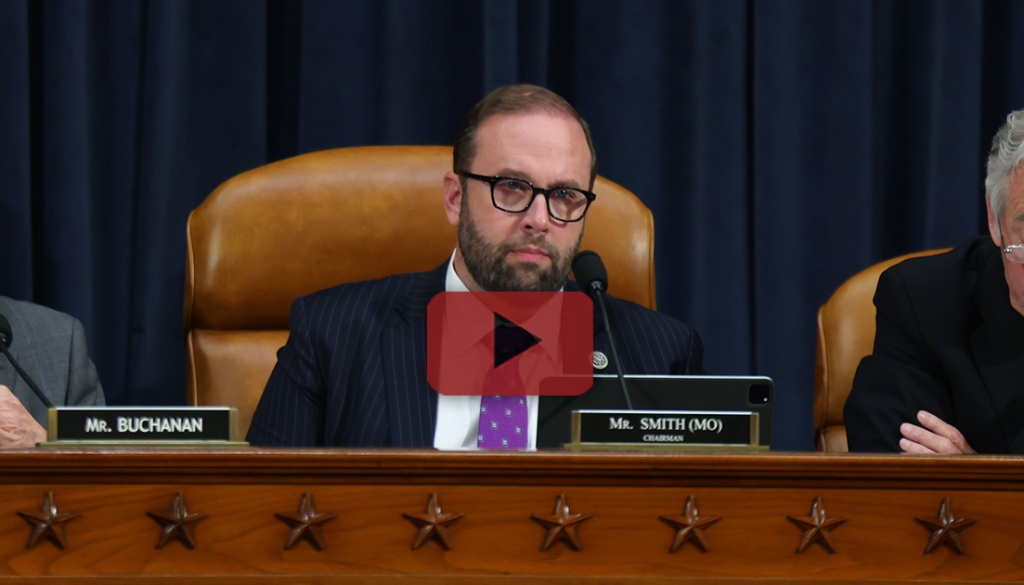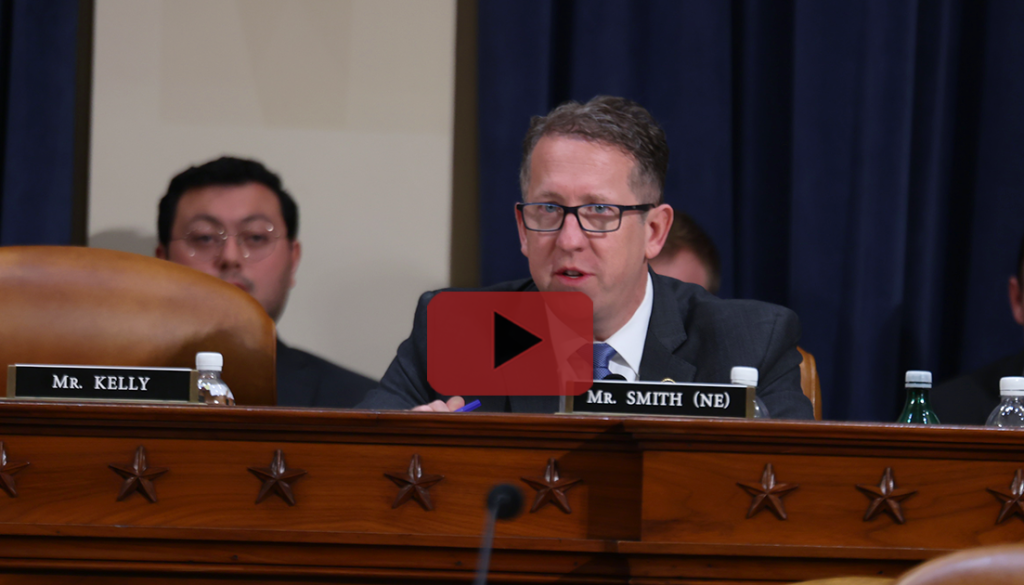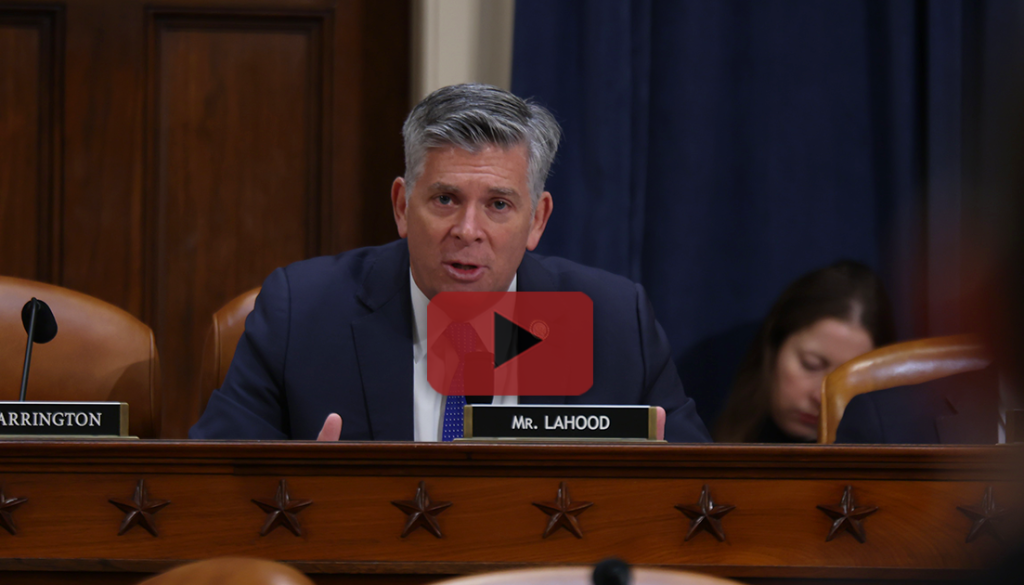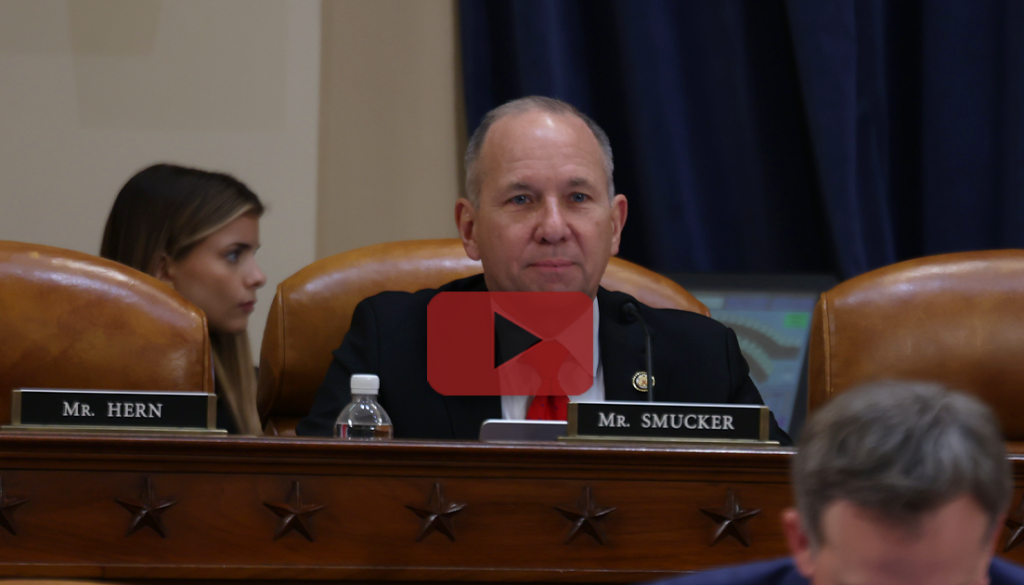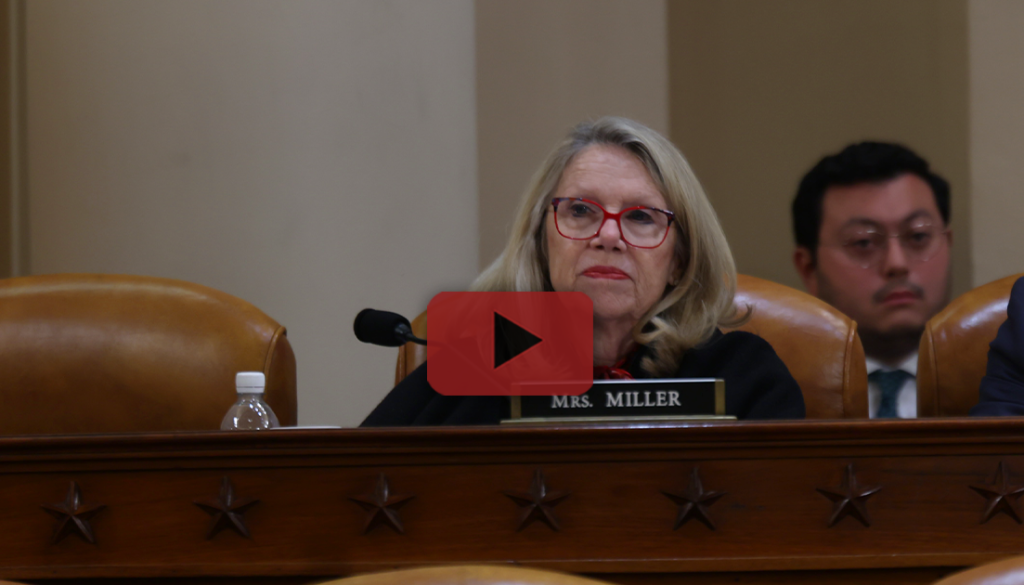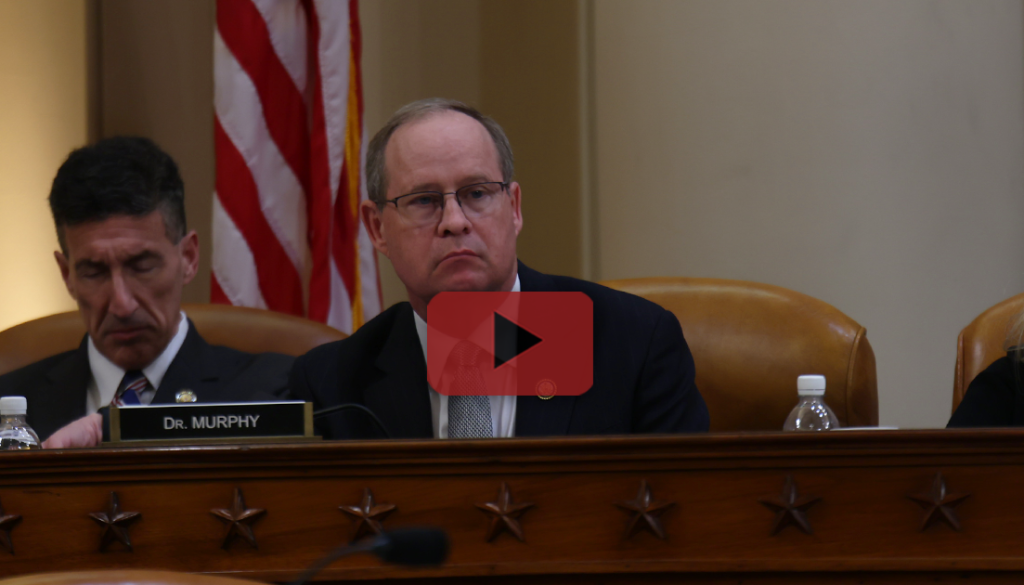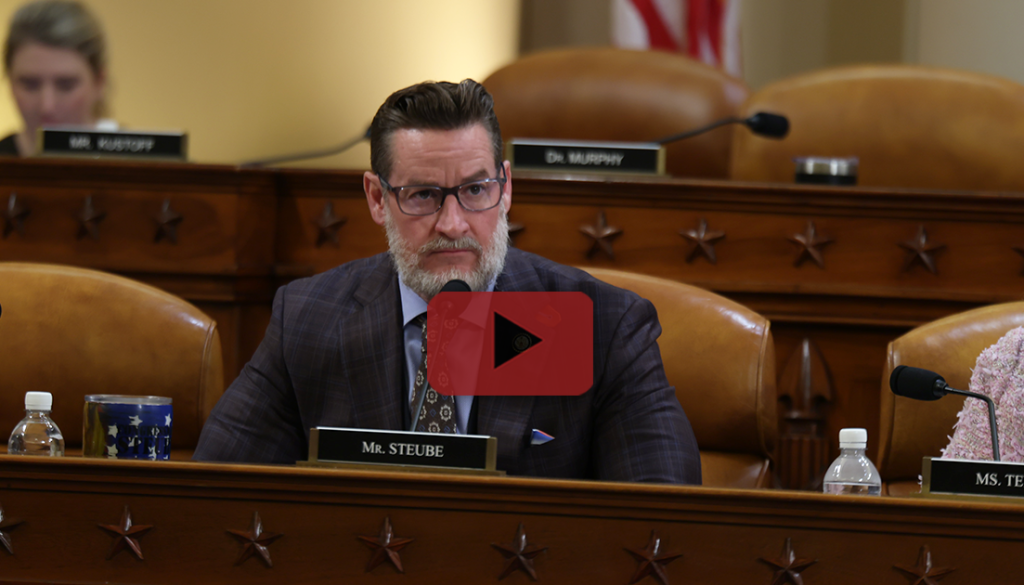WASHINGTON, D.C. – U.S. Trade Representative Jamieson Greer shared the transformational and historic trade actions taken by the Trump Administration during its first 100 days and outlined its vision for an America First trade policy during a hearing with the Ways and Means Committee this week. More than 75 nations have already reached out to President Trump, seeking to reset their trade relationship and open discussions on tariff and non-tariff barriers that currently deny access to foreign markets for American goods and services.
Ambassador Greer said he was “losing count” of the number of nations willing to finally treat American exports to their country fairly as a condition for accessing the U.S. market. President Trump’s 90-day reciprocal tariff pause, announced on Wednesday, creates an opportunity to level the playing field for U.S. businesses and farmers in foreign markets while maintaining the leverage offered by the Administration’s tariff actions.
“Fundamentally Unfair”: European Union Barriers Hurt American Farmers
Under President Biden, the lack of market access resulted in a $32 billion agricultural trade deficit last year, with much of that shortfall attributed to the European Union (EU). The U.S. Trade Representative’s annual National Trade Estimate Report outlines the tariff and non-tariff barriers that American farmers face. The 2025 report indicates that the EU remains one of the worst offenders, erecting non-tariff barriers intentionally designed to impede American agricultural exports. Consequently, American farmers and ranchers have nearly no access to the EU’s 450 million consumers, while EU exports enjoy access to U.S. markets with limited barriers. The Trump Administration is committed to tearing down tariff and non-tariff barriers that American agriculture faces around the world in order to restore the agricultural trade surplus, as was the case in President Trump’s first term.
Chairman Jason Smith (MO-08): “I have shared my opinion about the European Union and how disappointed I am of how they’ve taken advantage of U.S. farmers and U.S. agriculture. I heard them say that they’re willing to lower their tariffs on industrial goods. That’s not good enough, Ambassador. They have to address their non-tariff barriers when it comes to agricultural goods. The country of Honduras purchases more pork than the entire European Union. There are only 10 million people there. There are 450 million people in the European Union. Then you look at the country of Angola. They purchased more chicken from us than the entire European Union. The European Union has a GDP 200 times that of Angola. These are trade problems. This administration will continue to fight for the American farmer, that Missouri farmer who’s been screwed for such a long time by our friends. I want to thank the President. I want to thank you for continuing with it. Do you agree that there’s a serious trade problem when it comes to agriculture in the European Union?”
Ambassador Jamieson Greer, U.S. Trade Representative: “Yes, Chairman, it’s fundamentally unfair. It’s structurally unfair. It has been for decades. I’ve been very clear with them that any kind of agreement or negotiation or anything, it has to have an ag component for all the reasons you described.”
Trump Trade Policies Brought Foreign Nations to Negotiating Table
More than 75 nations have reached out to the Trump Administration to discuss removing market barriers for U.S. goods and improving access for U.S. made and grown products. The President’s 90-day pause on reciprocal tariffs will provide additional time to rebalance U.S. trading relationships toward fairness for American workers and businesses. In the hearing, Ambassador Greer announced that he had already met with trade representatives from Mexico, Ecuador, the European Union, and South Korea the day before to discuss fairer arrangements for U.S. goods.
Rep. Adrian Smith (NE-03): “How is USTR responding to the influx of requests and prioritizing negotiations?”
Ambassador Jamieson Greer, U.S. Trade Representative: “The other countries know what the trade barriers are that we’re talking about and we’re moving very quickly. We’re meeting every day with several trade ministers from other countries. The crack staff at USTR is working very hard as well to put together what would make sense in terms of near-term agreements with respect to reciprocal trade.”
Trump Trade Agenda Will Protect American Technological Leadership
The Biden Administration retreated from America’s leadership role in protecting digital trade and innovation on the global stage. The previous administration abandoned core bipartisan digital trade rules at the World Trade Organization, creating an opening for foreign competitors such as China and the EU. At the hearing, Ambassador Greer committed to protecting America’s digital innovators and competitive edge.
Rep. Darin LaHood (IL-16): “I believe we have a tremendous opportunity in digital trade and the United States must lead in setting global rules and standards. We can’t allow non-market adversaries like China, in particular, to set these standards and further manipulate the digital trade agenda. Unfortunately, under the Biden Administration, we ceded this authority, and we’ve seen the consequences of discriminatory policies hurting U.S. innovation. I think we can be aggressive, working with our like-minded partners and allies to build on the progress made during President Trump’s first administration, including the digital agreement with Japan and the robust standards set in the digital chapter of USMCA, which is, in my view, kind of the gold standard for future trade agreements. What can you say about how you view the expanding U.S. leadership in digital trade moving forward in this administration?”
Ambassador Jamieson Greer, U.S. Trade Representative: “I think it’s a huge comparative advantage that we have. Our digital commerce companies and digital trade companies are the most competitive in the world, and they’re competing with ones from China. In that competition, we have to win. If I have other countries discriminating against our champions, that’s bad for America. It’s bad for companies and workers, and it’s bad for the world. I know we’re having a national conversation politically on how to regulate digital tech, etc., but in no case can we allow discrimination to undermine our competitive advantage here.”
Tariff Goal: “American Businesses Are Much More Competitive When They Have Open Markets Overseas”
President Trump’s tariff actions represent a meaningful change in the nation’s trade policy. Foreign competitors benefit from their protectionist tariffs, non-tariff barriers, and state subsidies that distort foreign markets against American producers. As Ambassador Greer explained, the recent global and reciprocal tariffs incentivize foreign nations to offer fairer treatment to American businesses in those markets, fostering a “virtuous cycle” of investment and jobs to satisfy foreign demand for U.S. exports, which in turn generates further investment and jobs in the United States.
Rep. Lloyd Smucker (PA-11): “We appreciate the work that the President did during his previous administration. We appreciate the work that he’s doing and that you’re doing on trade. It’s a refreshing change to what we’ve seen over the past four years, and we trust the President to get this right again. We’re seeing already the impact when you have…countries coming to the table that have for a long time had tariffs in place for our goods, but we weren’t doing the same. The idea of reciprocal trade is a great one. I can tell you the American people in my district, business owners in my district, very much support, and they support the goals of this administration to bring back manufacturing jobs to the country, to bring back that investment in the country, and then to open up markets to our great American businesses. I will also say this, many of those business owners who love what the President is trying to accomplish are feeling a little consternation. They’re concerned how we’re going to achieve what intent is here. They still believe in what the President is doing…I just wanted to give you an opportunity, if you don’t mind, to just sort of expand on some of the things that you said previously, but with that sort of audience in mind…What is the end goal?…What will success look like? How will that help every American business?”
Ambassador Jamieson Greer, U.S. Trade Representative: “Ithink we’ll find that American businesses are much more competitive when they have open markets overseas. People talk about the high cost of doing business in America and manufacturing in America and growing in America, but when we cannot access foreign markets, or we face barriers overseas, and not just tariffs, but also all the non-tariff barriers that increase costs, and it makes it difficult to be competitive globally, and even domestically. At the same time, we have foreign producers who receive subsidies. They have countries where economic policies depress domestic demand. They make more stuff than they can consume; they send it here. In the near term, we’re going to see a handful of partners who open their markets more to us, and it makes it much easier and much more competitive economically to have manufacturing here, to grow products here, to process them here, and export them to the rest of the world…We have to reshore manufacturing. This is an important way to do it. We can have tariff protection as we get rid of the trade deficit, reshore manufacturing, and as other countries open their markets, they can potentially have a different arrangement that helps us as we try to have reciprocal trade and get rid of the deficit and get back to being a producing economy.”
China Must Not Sneak Goods Into U.S. Tariff-Free
The scheduled joint review process for USMCA begins next year. Since it came into force in 2020, China and other nations have established manufacturing facilities in Canada and Mexico to export their goods into the United States without incurring any duties. This unfair trade tactic exploits U.S. trade rules and undercuts American products in the U.S. market. It will be a critical issue to examine during the review process.
Rep. Carol Miller (WV-01): “Looking to the very near future, the administration is required by statute to undertake the United States-Mexico-Canada Agreement review process in 2026…I’m well aware that this agreement is not perfect and we are fortunate to have the review process in place in order to make the necessary improvements. Ambassador Greer, what commitments can you make to us today in regard to the USMCA review? Specifically, how will you use this opportunity to advance President Trump’s goals of promoting domestic manufacturing and how will you engage with Congress to facilitate this process?”
Ambassador Jamieson Greer, U.S. Trade Representative: “I’ll just note that goods coming from Canada and Mexico right now that comply with the rules of the agreement continue to enter duty free. This is an important agreement. I met with my Mexican counterpart last night. In the works, I have a meeting with my Canadian counterparts, and we expect that we will initiate the public consultation process that’s required by the statute at some point. With the USMCA, it’s important that Canada and Mexico not be used as an export platform for third countries. That’s not what we want. USMCA should be an agreement that promotes manufacturing in America and that we can rely on our partners to the north and south, if needed. It can’t be a situation where countries can just come in, China, Vietnam or somebody, build a factory in Mexico, assemble it with parts from there and send it across and get the benefit of an agreement where they’ve taken no obligations. So I want to make sure that it truly is an agreement that helps America first.”
Preventing the Next Supply Chain Crisis
During the COVID-19 pandemic, Americans recognized the extent of the country’s dependence on foreign nations, particularly China, for critical supplies such as medication. The Biden Administration failed to take meaningful action to reshore the medical supply chain, leaving the nation vulnerable to another global crisis or the unpredictability of the Chinese Communist Party. Fortunately, the Trump Administration is focused on employing our trade tools to ensure a safe and reliable supply of drugs and medical devices for Americans.
Rep. Greg Murphy (NC-03): “One thing that happened in the pandemic…we saw that our supply chain for pharmaceuticals, for PPE, etc, is critically at risk during these things. If China were to shut off all its exports overnight, medical supply chains would be one of the industry’s hardest hit, and we would have American patients literally dying because they could not get medicines or other type of devices. Can you discuss how the Trump administration’s trade [agenda] is helping to secure our health supply chain?”
Ambassador Jamieson Greer, U.S. Trade Representative: “First of all, we have to reshore pharmaceutical production to avoid the very situation you talked about. We have to do it now. We can’t wait for the next crisis. We can’t wait for the next conflict. We have to do it now. I understand the Commerce Department will be undertaking an investigation of the pharmaceutical supply chain to assess what tools we can use. The President has talked about tariffs that might apply to certain things to incentivize reshoring. I assume that investigation will also have other ideas as well.”
Trump Tariffs Already Keeping Jobs In America
President Trump’s trade agenda promotes investment and job creation in the United States. Last week, even more companies announced new investment and jobs into the United States that would have otherwise been sent to a foreign country. Businesses have pledged $7 trillion in new investments in the U.S. since Inauguration Day.
Rep. Greg Steube (FL-17): “What evidence have you seen that President Trump’s tariffs are driving jobs back to the United States and helping to rebuild our manufacturing base?”
Ambassador Jamieson Greer, U.S. Trade Representative: “For example, the auto tariffs that were imposed; we’ve already seen that one company is increasing employment, including temporary employment, in Indiana. In Tennessee, there was a shift that was going to go down to another country. They kept that shift in America. Everyone knows, if you want certainty, if you want access, you build in America and you use American labor.”

